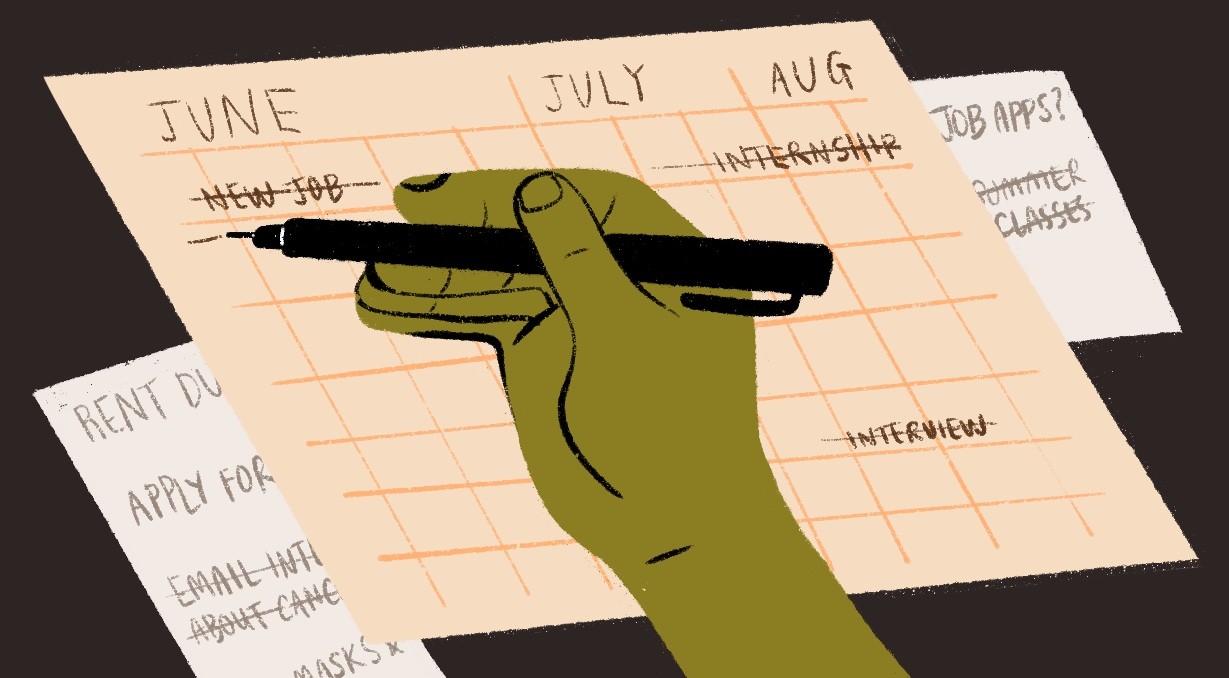Amid the ongoing stress of the COVID-19 pandemic, many University of Minnesota students are now concerned about their job and internship opportunities.
The virus has caused millions of job losses in the U.S. over the last few months. For students trying to break into the job market, the recession feels threatening to their future.
Elizabeth Olsson, a senior majoring in physiology, connected with Pace Analytical at the University career fair in February. She was set to begin working with the company on April 7, but her start date was pushed back due to the pandemic.
“I’ve been emailing them about every week just to see if there’s any updates,” Olsson said.
While Olsson said she is worried about the offer being rescinded altogether due to the circumstances, a more pressing concern is leaving a gap in her resume, something she said she fears looks bad to employers.
“It puts me in this weird limbo … should I be applying to other things right now in case this offer gets taken away?” Olsson said. “I don’t want to have wasted a month waiting on … this company when I could have been looking for another job.”
Other students have expressed having similar experiences.
Senior MacKenzi Nelson was prepared to start teaching in South Korea after graduation. However, she was informed on April 20 that she could no longer teach because her schedule didn’t allow for the 14-day quarantine the organization required.
“It’s hard because I don’t have any income. I still have to pay some rent,” Nelson said. “[This] has thrown a wrench in all of my plans.”
While she intended to find a job to replace the lost income, it can be difficult to find a new one in the current environment, Nelson said.
Some students are also experiencing layoffs from jobs they previously held, upending their career plans.
Sophomore Brennan Wolfe, who has worked for Pepsi for about two years, was recently let go due to the company’s financial concerns.
“They just have to make those cuts because they can’t afford to retain a bunch of us,” Wolfe said.
Wolfe intended to work his way up the company. However, now that he has been laid off, Wolfe said he is concerned about how his resume will compare to those who have managed to continue working for the company through the pandemic.
“I rely on working hard in school and full time during the summer … to pay for my tuition,” Wolfe said.
Wolfe now plans to take out student loans to support himself through college, something his work was helping him avoid before he was laid off.
“I feel like the class of 2008 and 2009 also felt the same [as now],” Olsson said. “I’m not getting a paycheck. I can’t be saving any money, and I’m just running out of money.”








